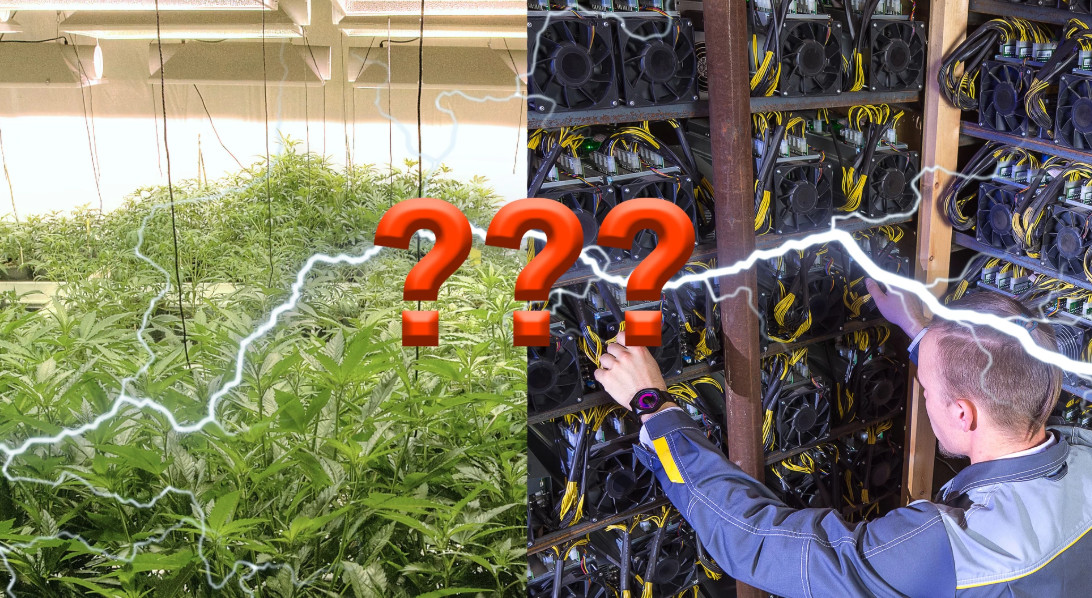It’s no secret that mining cryptocurrency-a largely automated process that uses powerful computers to find a specific hash value that verifies the next block of transactions-uses up a lot of electricity. Like, a lot a lot. In fact, most investors that want to get into Bitcoin will simply buy the cryptocurrency on the market instead of mining it. This is because it’s much easier to use diesem Bitcoin Trader Test to check whether or not a trading platform is a scam or not than it is to mine cryptocurrency themselves.
Now cryptocurrency miners are gobbling up the cheapest electricity they can find, which is concerning to municipalities worried about electricity rates rising for everybody due to the activity of a few nerds. The city of Plattsburgh in New York State recently opted to temporarily ban new Bitcoin mines while it conducts research on energy usage, and in Washington State power authorities are following electricity spikes only to find apartments full of humming servers mining digital money.
The latter report led to some jokers on social media gabbing about how, if growing marijuana were completely legal, police might raid a house expecting to find an unregistered Bitcoin mine and instead find a bunch of totally fine pot.
Indeed, electricity consumption records are an investigative tool for police trying to bust grow ops and utilities often voluntarily give information to the police. Last year, a Canadian court ruled that police must get a warrant before obtaining hydro records, but did not exclude the evidence collected using that information even though it was obtained without a warrant.
Now, this got me thinking: How much energy does it take to mine Bitcoin versus growing cannabis, anyway?
How much energy does it take to grow weed?
According to a 2014 report produced by the Northwest Power and Conservation Council (NPCC)-an organization that provides energy and environment planning for Idaho, Montana, Oregon, and Washington-the majority of a grow op’s electricity costs go towards lighting (38 percent) and air conditioning (21 percent), with CO2 injection, dehumidifying, and so on making up the rest.
According to that 2014 NPCC report, indoor cannabis production can consume 4,000 to 6,000 kilowatt hours (kWh) of energy per kilogram of product, or just over two pounds. In January of 2018 the CBC, reporting on Canada’s booming pot business, reported that it takes about 2,000 kWh to produce one pound of product, which is about the same as NPCC’s estimate.
Going by these estimates, let’s do some quick math that shows how costly it is, electricity-wise, to grow bud. In the New York area, electricity cost 19.8 cents per kWh in February. In that region, burning through 5,000 kWh will run you just under $1,000. For that amount of energy, you could power five average American homes (which consume roughly 900 Kwh per month) for a month. Or, you could grow one kilogram of pot (35 ounces) which adds up to roughly $12,000 USD worth of dank.
How much energy does it take to mine Bitcoin?
Based on price, the closest analog to one kilogram of pot ($12,000) in Bitcoin is two whole bitcoins-currently valued at $14,800. Let’s look at how much energy it takes to generate two new bitcoins as a reward from solving a block of transaction data.
According to an extremely generous estimate from Alex de Vries over at Digiconomist (because it assumes every miner is using the most efficient hardware), the whole Bitcoin network uses 32 terawatt hours annually, which is 32 billion kilowatt hours. Assuming an average of one block being solved every 10 minutes, that’s roughly 52,560 blocks of Bitcoin data solved in a year. After the total energy use of the network per year is divided by the amount of Bitcoin blocks found, we get the very rough estimate of 608,828 kWh used up for every solved block of Bitcoin data.
One solved block of Bitcoin data currently generates 12.5 bitcoins for the miner. If we divide the amount of kilowatts it takes to solve a block by that number, and multiply it by two, we see that generating two bitcoins-currently worth $14,800-uses just under 100,000 kWh of electricity, which at consumer rates in the New York area would cost roughly $19,000. At rates that industrial cryptocurrency miners prefer (say, two cents per kWh), that would cost around $2,000. This amount of electricity could power two dozen average American homes for a month; that’s an entire small community.
All of this math is extremely rough and of the back-of-envelope variety, but the inescapable conclusion is that it takes way more electricity-like, twenty times more-to generate an equivalent value in bitcoins than it does in cannabis.
So maybe mining bitcoins isn’t the new growing weed; it’s worse.
Credit: motherboard.vice.com












